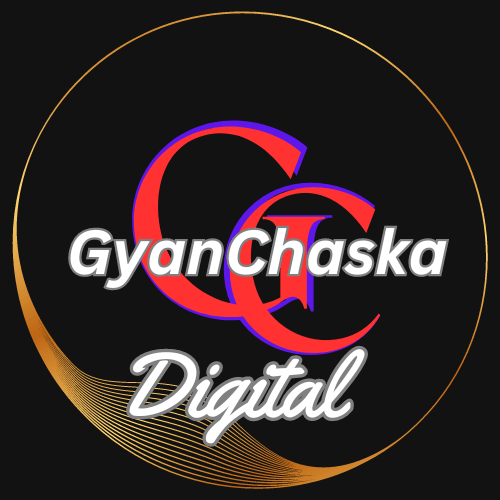Future of AI in Digital Marketing: Trends and Beyond

AI is reshaping the style of digital marketing in profound ways. In the ever-evolving landscape of digital marketing, staying ahead in the race is paramount for businesses striving to maintain a competitive edge. As we navigate through the technological advancement, one technological marvel stands out as a game-changer: Artificial Intelligence (AI). From revolutionizing customer experiences to optimizing advertising campaigns.
The Evolution of AI in Digital Marketing
The integration of AI in digital marketing marks a paradigm shift in how businesses interact with their audience. Gone are the days of one-size-fits-all marketing strategies; AI empowers marketers to personalize content, predict consumer behavior, preferences, purchasing history and enhance overall engagement.
Initially, AI in digital marketing was limited to basic automation tasks, such as email marketing and chatbots. However, with advancements in machine learning algorithms and big data analytics, AI has transcended its traditional role and emerged as a strategic asset for marketers worldwide.
Trends Shaping the Future
AI is constantly evolving and improving, and so is the field of digital marketing. According to a report, businesses increased their digital marketing budget spending at a very fast rate.
Some future trends include:
1.AI Hyper-Personalization in Digital Marketing
AI-driven personalization is not merely about addressing customers by their first name. It’s about understanding their preferences, behaviors, and context to deliver tailored experiences across multiple touch points.
Hyper-personalization empowers brands to forge deeper and more significant connections with their audience, leading to amplified customer loyalty and elevated conversion rates.
2.AI Predictive Analytics in Digital Marketing
Predictive analytics harnesses the power of AI to anticipate future trends and outcomes based on historical data patterns. By leveraging predictive algorithms, marketers can forecast customer lifetime value, optimize pricing strategies, and anticipate churn rates, enabling proactive decision-making and resource allocation.
3. Voice Search Optimization
With the proliferation of voice-enabled devices like smart speakers and virtual assistants, optimizing content for voice search is imperative. AI-powered natural language processing (NLP) algorithms decipher user queries and deliver relevant results, necessitating marketers to tailor their SEO strategies accordingly.
4. Automated Content Creation
AI-driven content generation tools are revolutionizing the way marketers create and distribute content. From generating blog posts to crafting compelling social media copy, these platforms utilize natural language generation (NLG) algorithms to produce high-quality content at scale, freeing up valuable time for marketers to focus on strategy and creativity.
5. Augmented Reality (AR) and Virtual Reality (VR)
AR and VR technologies are pushing the boundaries of immersive brand experiences. By integrating AI algorithms, marketers can create personalized AR/VR content that echoes with their target audience, fostering deeper engagement and brand loyalty.
Beyond the Horizon
As we peer into the future, the trajectory of AI in digital marketing appears boundless. From autonomous marketing platforms to AI-powered influencer marketing, the possibilities are limitless. However, with great power comes great responsibility. Marketers must tread carefully, ensuring ethical AI usage and safeguarding consumer privacy at every turn.
1.AI-Powered Customer Journeys
In the future, AI will play a pivotal role in orchestrating seamless customer journeys across multiple touchpoints and channels. By leveraging AI algorithms to analyze customer data and behavior in real-time, marketers can deliver personalized experiences that anticipate and fulfill individual needs and preferences at every stage of the buyer’s journey.
2.Hyper-Automation
Beyond basic automation tasks, AI will usher in an era of hyper-automation, where sophisticated AI algorithms handle complex marketing processes autonomously. From content creation and optimization to campaign management and performance analysis, AI-powered systems will streamline workflows, improve efficiency, and drive better results with minimal human intervention.
3. AI-Generated Creativity
While creativity has long been considered a distinctly human trait, AI is poised to challenge this notion. In the future, AI-driven creativity tools will empower marketers to generate compelling content, design captivating visuals, and craft engaging narratives that resonate with their target audience. By harnessing the power of AI-generated creativity, marketers can unlock new levels of innovation and differentiation in their campaigns.
4. Ethical AI Usage
As AI becomes more pervasive in digital marketing, ethical considerations surrounding its usage will become increasingly important. Marketers must prioritize transparency, fairness, and accountability in AI-driven decision-making processes to ensure that consumer trust and privacy are safeguarded. By adopting ethical AI practices, businesses can mitigate risks and build stronger, more sustainable relationships with their audience.
5. AI-Powered Predictive Analytics
The future of digital marketing will be shaped by AI-powered predictive analytics, enabling marketers to anticipate future trends and consumer behavior with unprecedented accuracy. By leveraging advanced machine learning algorithms, marketers can forecast market dynamics, identify emerging opportunities, and proactively adapt their strategies to stay ahead of the curve.
6. Conversational AI and Voice Commerce
With the rise of voice-enabled devices and virtual assistants, conversational AI will become increasingly integral to digital marketing strategies. Marketers will leverage AI-powered chatbots, voice assistants, and natural language processing (NLP) algorithms to engage customers in real-time conversations, deliver personalized recommendations, and facilitate seamless transactions through voice commerce.
7. Augmented Reality (AR) and Virtual Reality (VR) Experiences
AI will drive innovation in augmented reality (AR) and virtual reality (VR) technologies, enabling marketers to create immersive brand experiences that blur the lines between the physical and digital worlds. By harnessing AI algorithms for content personalization and contextual targeting, marketers can deliver hyper-realistic AR/VR experiences that captivate audiences and drive brand engagement.
Conclusion
The future of AI in digital marketing holds boundless possibilities for innovation, transformation, and growth. By embracing AI-driven technologies and staying at the forefront of digital marketing trends, businesses can unlock new opportunities, drive customer engagement, and shape the future of marketing in the digital age. As we embark on this exhilarating journey into the unknown, one thing is certain: the future of AI in digital marketing is brimming with potential and promise.
